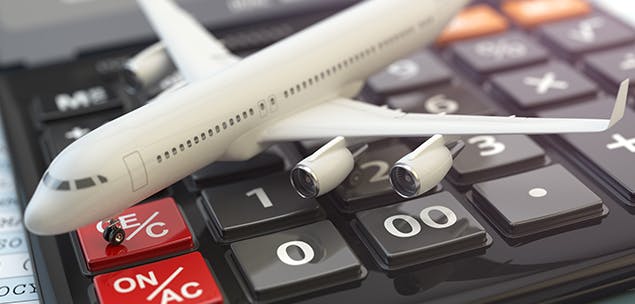For many companies travel expenditure will be a top five business overhead but a surprising number of businesses still allow staff to book their own travel on company credit cards or be reimbursed for their own travel expenses. This is the most expensive and difficult-to-control way of going about managing your travel budget.
If employees are allowed to book their own travel you can easily lose control of your business’ travel expenditure. When staff make their own bookings they sometimes base their choice on emotional factors or personal wants that aren’t really necessities, and that can cost extra. For example, people might prefer one airline because they get frequent flyer points, even if another is offering a better priced fare. It can cost a company 20 to 30 percent of its travel budget.
The solution? Create a travel policy, communicate the policy to staff, stick to it and ensure all travel bookings go through approved channels. A travel policy should be implemented throughout an organisation from CEO level down. Cost savings initiatives are not always positively received by staff so it is important to maintain open communication with departments and personnel affected.
A travel policy should include the following key components:
- A procedure for requesting and booking travel (e.g. Travel requests must be made at least 14 days in advance for domestic travel and 21 days for international).
- Reason codes to identify the causes for out of policy travel. This is paramount to addressing compliance.
- Air travel class details (economy / business) for domestic and international travel.
Implementing a travel policy internally is most suitable for businesses with large travel budgets, but even if a company only has a few people who are constantly “on-the-road”, it will still deliver significant savings. For those small businesses that do not have the resources required to implement an internal travel policy, outsourcing can be a great alternative.
There are five questions you need to ask yourself when it comes to deciding whether you should outsource your corporate travel spend:
- TIME – Do I have the time to apply the necessary internal resources to manage my business’ travel arrangements and what is the opportunity cost?
- EXPERTISE – Do I have the specialised expertise to understand all facets within the travel category?
- BENCHMARK PRICES – Do I have the knowledge to accurately benchmark the complex pricing within the travel industry?
- SUPPLIER KNOWLEDGE – Do I have an intimate knowledge of the supplier market and all of the choices available across airfares, hotels and car rentals worldwide?
- SUSTAINABILITY – In the event of personnel changes, will there be an ongoing commitment to drive sustainable savings within the travel category?
If your answer is “No” to any of these questions you should consider using a travel management company to expertly manage your business’ travel needs.
Look for a group that can tailor their service and solutions to your preferences, policies and budget. Don’t just focus on initial bookings. Look for a group who will be there to reschedule flights and change your arrangements when the unexpected happens and who are able to provide extra services like arranging the necessary visas for overseas travel.
It can also make a big difference whether your travel management company is retail or a corporate agent. A lot of the time small businesses have retail agents acting on their behalf, who don’t have the corporate experience, the technology or the buying power.
Implementation of a comprehensive travel policy in conjunction with the appointment of a professional and experienced external travel company should result in an effective travel solution for your business and help to achieve immediate control of your travel budget, sustainable savings, corporate governance and process efficiency.
– Hassan Nasser is the manager strategic procurement for travel with Expense Reduction Analysts (www.expensereduction.com)
People who read this, also liked:
Managing travel costs
Flying business class: Is it worth the cost?

